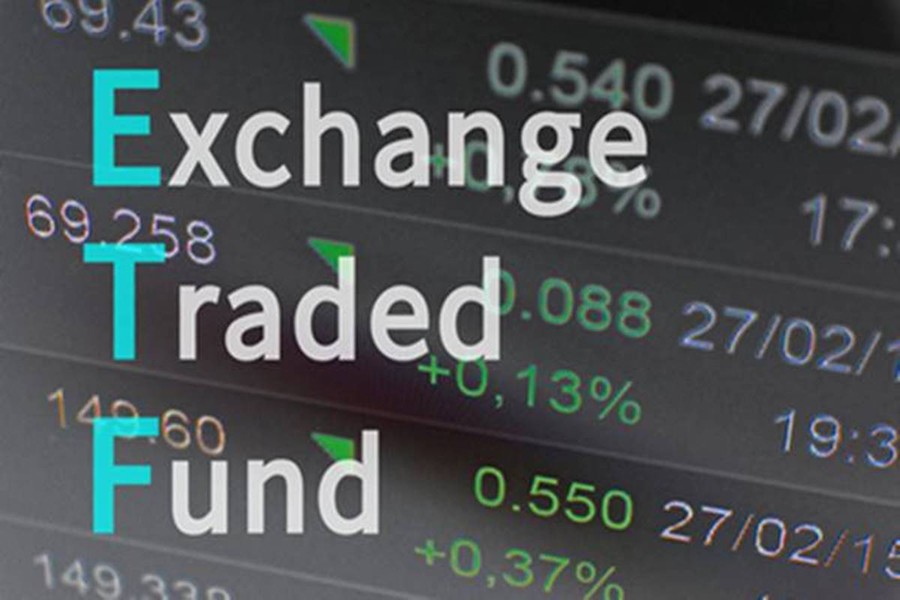Dhaka Stock Exchange (DSE) is yet to launch the Exchange Traded Fund (ETF) despite the gazette on the rules of this fund was published three years back.
The DSE officials said the ETF could not be launched within expected timeframe due to various reasons including the lack of supporting products.
"The main product of the ETF is index. The volatility of our three indices hindered the launching of the product," said a senior DSE official preferring anonymity.
An ETF is an open-end Collective Investment Scheme (CIS) that continuously issues and redeems its shares of stock in creation of unit in exchange for basket and representing an index.
ETFs are in many ways similar to mutual funds; however, they are listed on exchanges and ETF shares are traded throughout the day just like ordinary stock.
To diversify the capital market, the Bangladesh Securities and Exchange Commission (BSEC) finalised the rules of the ETF in early May, 2017.
Later, a gazette on the rules was published on June 13, 2017.
The DSE officials said the rules of market makers and short selling are also required to launch the ETF.
"The regulator has formulated and finalised the market maker rules. But no one has yet agreed to be market maker," the DSE official said preferring anonymity.
He said there is a short selling regulation which remains suspended since 2006. "The regulation is yet to be updated for launching the ETF."
The DSE official also said huge marketing is also required to create awareness among investors about the ETF.
"But the exchange was not able to conduct marketing for the ETF due to frequent volatility observed in the equity market in recent years," the official added.
Previously, the BSEC had said they had completed their job required to launch ETF.
"But the stock exchanges could not launch the ETF due to various complexities," said an official of the securities regulator.
The securities regulator formulated the rules of the ETF as part of its regulatory initiatives to introduce new products in the country's capital market for the sake of market diversifications.
In case of offloading the mutual fund, a portion of the fund is raised through the public offering.
But, in case of the ETF no fund is raised through public offering as the authorised participants (APs) such as banks, broker dealers, professional trading houses and institutional firms contribute funds to create the ETF units and sell those in the secondary market.


